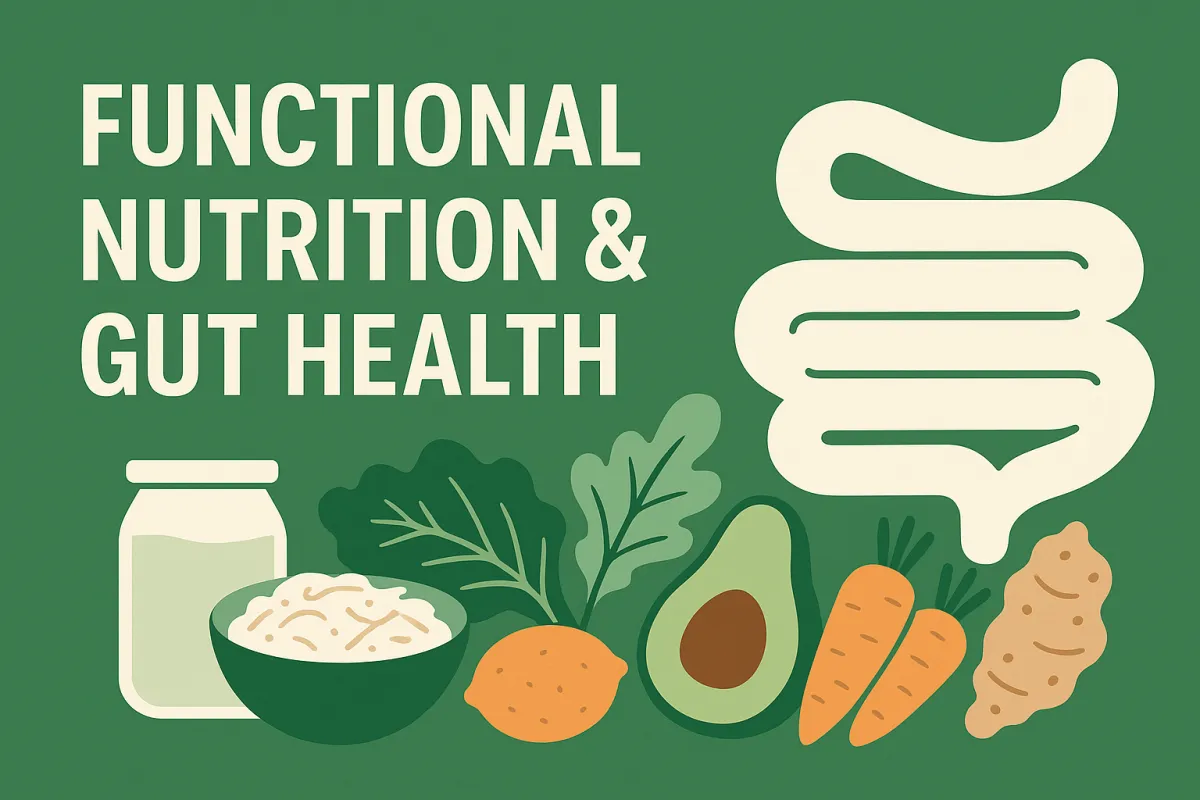
PWN Trending Aug 12 2025
Functional nutrition emphasizes foods like fermented vegetables, prebiotic-rich plants, and adaptogens to support gut health.(AI-generated illustration)
Functional nutrition is the practice of choosing foods for the benefits they provide beyond basic calories — specifically foods that support digestion, immunity, mood, and long-term resilience. With gut health increasingly recognized as central to overall wellness, here’s a practical, science-backed guide to what to eat and why it matters.
What Is Functional Nutrition?
Functional nutrition focuses on how particular foods, nutrients, and dietary patterns affect the body’s systems —most notably the gut microbiome. Instead of emphasizing calories alone, it prioritizes food that delivers measurable physiological benefits: improved digestion, balanced blood sugar, reduced inflammation, and better mental clarity.
Top Foods to Support Gut Health
Fermented foods: kimchi, sauerkraut, tempeh, kefir, and yogurt provide live probiotics that can diversify gut bacteria.
Prebiotic-rich plants: leeks, onions, garlic, asparagus, bananas, and Jerusalem artichokes feed beneficial microbes.
Polyphenol-rich foods: berries, green tea, dark chocolate, and olives reduce inflammation and nourish microbiota.
Fiber-forward whole grains: oats, barley, and brown rice help regulate bowel function and support short-chain fatty acid production.
Omega-3 sources: fatty fish (salmon, mackerel), chia,and walnuts support gut lining and reduce systemic inflammation.
Quick tip: Start small— add one fermented food to a meal daily and aim for 25–30g of fiber per day fromwhole foods.
Daily Functional Nutrition Checklist
Include a fermented food or beverage with one meal.
Eat a rainbow of plant foods to boost polyphenols and fiber.
Swap refined carbs for whole grains3–5 times per week.
Prioritize sleep and stress management— both reshape the microbiome.
Evidence & Emerging Research
Recent studies link microbiome composition to immunity, mood, and metabolic health. While research evolves quickly, the consensus favors dietary diversity, fermented foods, and minimizing ultra-processed foods for optimal gut function.
Practical Recipes & Meal Ideas
Breakfast: Overnight oats with berries, chia, and a spoonful of kefir.
Lunch: Mixed greens salad with tempeh, roasted sweet potato, and a garlic-lemon vinaigrette.
Dinner: Miso-glazed salmon with sautéed greens and brown rice.
Snack: Apple slices with almond butter and a sprinkle of cinnamon.
Quick Facts
• Gut-friendly foods: fermented +prebiotic + polyphenol-rich.
• Fiber target:25–30g/day
• Hydration supports digestion — aim for8+ cups/day.
SEO Keywords
functional nutrition, gut health, fermented foods, prebiotics, probiotics, fiber-rich foods, microbiome diet, gut-friendly recipes
Want more?
Subscribe for daily trending wellness posts —Join our newsletter.
Final Takeaway
Functional nutrition reframes eating as away to build resilience. Small daily choices— fermented foods, diverse plants, wholegrains, and stress management — add up to meaningful improvements in digestion, energy, and long-term health.
Published by PurelyWellnessNews.com. For questions or expert contributions, email [email protected].









